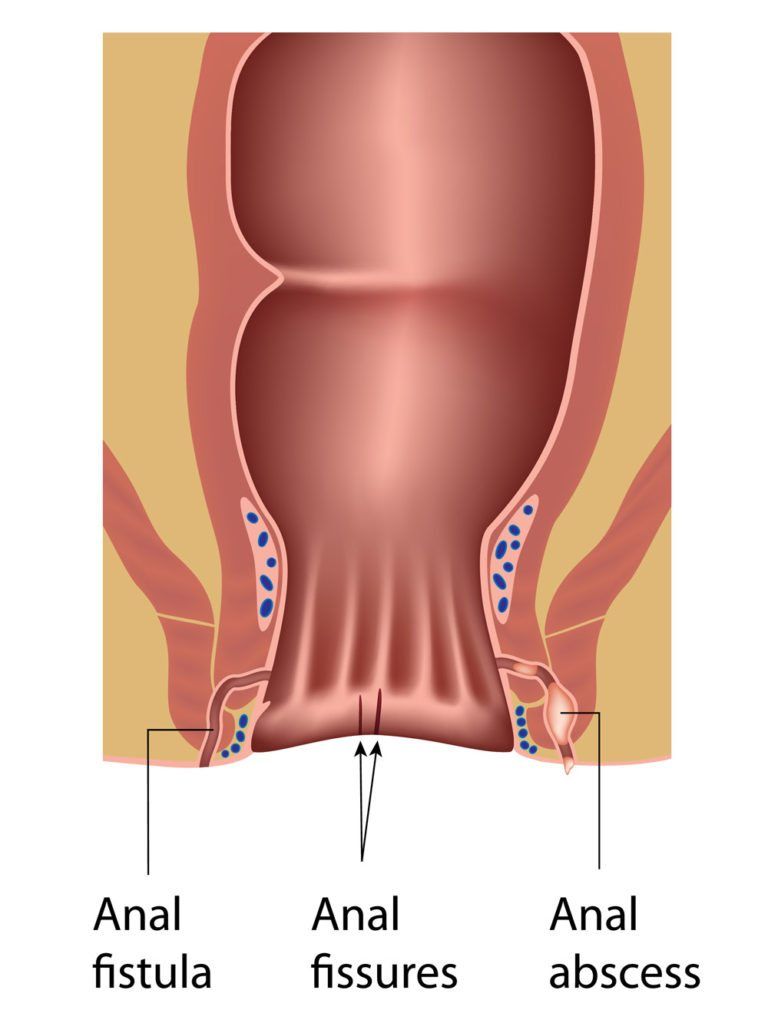Anorectal Abscesses and Fistulas

An anal abscess is a fluid-filled cavity usually caused by an infection of the anal glands. These glands can become infected if they are clogged with fecal matter or any type of foreign substance. Some people with anal abscesses – approximately 50% – will also develop an anal fistula, which is characterized by a tunnel within the skin connecting the clogged glands to the abscess.
Did you know…
that some abscesses can occur deep around the rectum, causing vague symptoms that may be difficult to diagnose? Often, a person with a deep abscess will experience only a fever and rectal pain related to the infection. Without a visible external manifestation of the abscess, a general surgeon may need to diagnose the condition via a digital rectal exam.
Frequently Asked Questions
What are the symptoms of an anal abscess or fistula?
The most common symptom of an abscess or fistula is constant, throbbing pain that worsens when sitting down. An abscess may lead to pain during bowel movements, which can also lead to secondary constipation. Anal abscesses typically cause visible boil-like swelling and irritation to the skin around the anus. Some abscesses are warm to the touch and cause fever.
What are the causes of an abscess?
The vast majority of abscesses are caused by blockages and infections within the anal glands. However, other conditions may also lead to abscess, such as an infected anal fissure or certain sexually transmitted infections. Anyone can develop abscess, though certain GI health conditions, such as inflammatory bowel disease or AIDS, can increase a person’s risk.
How can a general surgeon treat an abscess?
The standard treatment for abscesses is surgical drainage of the pus inside of them. This procedure is quick and usually successful. If a fistula is present at the time of drainage, a surgeon may choose to address it at the same time through one of several treatment options. Many people do not develop fistulas until several weeks or even years after an abscess has been drained.


